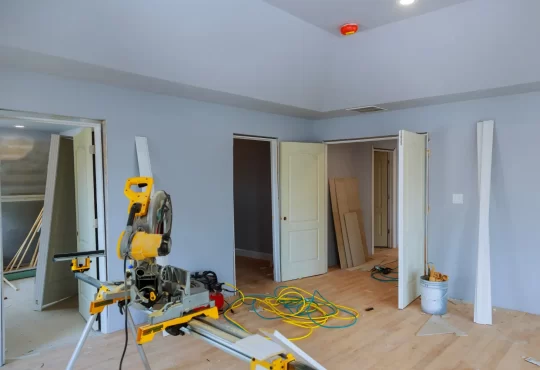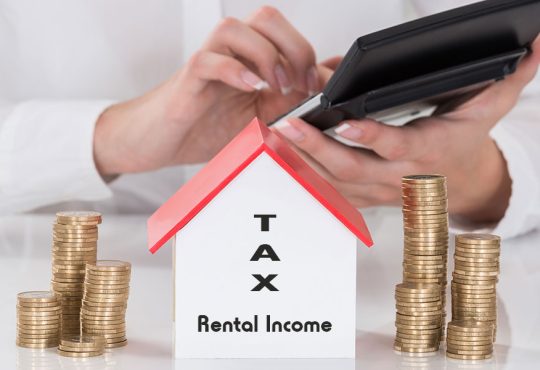Maximize Your Real Estate Property Returns: Earn Double-Digit Returns through 1031 Exchanges

As an all-rounder real estate investor, it is essential to leverage the power of 1031 exchanges. These investments can transform your portfolio, maximizing your real estate property returns.
This article is the ultimate guide to the 1031 exchange and describes how this can be a source for your stable income as a pro real estate investor.
What is a 1031 Exchange in Real Estate?
A 1031 exchange is an easy tax benefit that allows you to exchange like-kind properties without incurring any financial gain. It is a tax deferment strategy for investors to buy more valuable properties and defer taxes to reinvest.
Who Qualifies for a 1031 Exchange?
If you have held a property for two or more years for investment purposes, you qualify for 1031 exchanges. This property can be of any type, including apartments, vacant plots, rentals, or single-family residences.
Personal properties with limited use, like vacation homes, might qualify for 1031 exchanges as well, as 1031 exchanges are not just for real estate.
Busting Myths Related to the 1031 Exchange
As a real estate investor, you might have heard the following misconceptions regarding 1031 exchanges at least once during your tenure:
- You actually have to exchange properties with one person to benefit from this tax strategy.
- The exchange should occur in one transaction.
- Residential properties are not replacement properties.
- Exchange requires one-on-one properties.
Most of the points stated above might seem true, but they are absolutely false rumors surrounding the real estate market.
- You can sell your property to a different person and buy a replacement property from another interested individual.
- The buying and selling transactions are not bound to happen simultaneously, as you have 180 days to buy after selling your property.
- Some personal residential properties also qualify for 1031 exchanges.
- You can exchange one property for two or more properties that total to the same or higher value.
How to Invest through 1031 Exchange?
The first step to investing in a 1031 exchange is to choose the property to exchange with. Remember, according to the IRS, you can exchange like-kind properties, for example, a rental property with another rental unit. Lastly, you need to look out for a qualified intermediary with no financial relationships with investors to hold the proceeds until the completion of selling and buying.
Your replacement property should be equal to or greater in value than your original property. Remember to file IRS Form 8824 in the current year’s tax return. Consider that this process complies with all the other state and local laws, and try to educate yourself with a real estate expert.
As an investor, you also ensure that you select the replacement property within 45 days and complete the purchase within 180 days of selling the original property.
And there you have your first 1031 exchange property in your real estate investment portfolio.
What Adds Value to a 1031 Exchange?
Among the many benefits, here are some advantages of the 1031 exchange:
- No capital gains taxes on exchanged properties of the same or higher value.
- The deferment of taxes allows you to invest profits earned through 1031 exchanges back into real estate.
- The variety of exchanges, including simultaneous and delayed exchanges, provides the flexibility to buy and sell many 1031 exchange properties.
The Ideal Company to Invest with
Look for a real estate company that offers personalized services to its investors so that their needs are met on a case-by-case basis, leading to better outcomes. Ensure the company has the best customer service and is always available to its investors. Contact a company that hires market experts with great expertise in the real estate market and can handle complex issues by offering innovative solutions.
With the 1031 exchange, you can boost your real estate investment portfolio and earn double-digit returns on your properties. In the long run, it can lead to financial freedom and a more stable income, allowing you to accumulate generational wealth.

Ryan Whitefield is a real estate investor and mentor with a diverse experience of more than 20 years. As the founder of REVILO Property Group and co-founder of Carlton James Group, Ryan is on a mission to transform and simplify real estate investments. His early years in construction fueled his desire to leverage the recession-free benefits of the real estate industry. After building and flipping over 500 homes, Ryan repositioned his skill set as an educator to enable other investors to earn financial independence through large-scale multifamily properties. By educating amateur investors on self-directed IRAs, he plans to diversify residential and commercial real estate and build a solid financial future for his investors.




